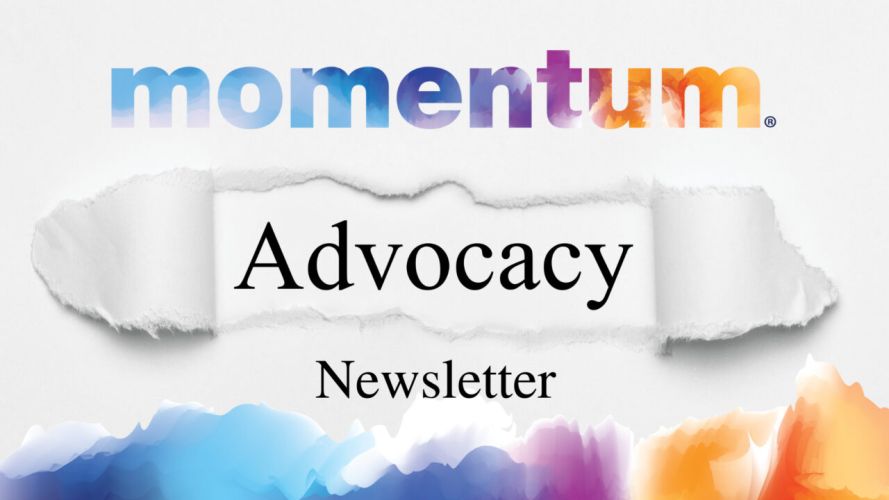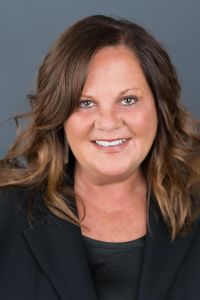

A Note from the CEO…
We continue to follow on-going budget discussions on Capitol Hill with great interest and concern. Of particular concern is the debate regarding funding levels for essential government programs with Medicaid, the main source of funding for disability services and supports, receiving most of their attention.
California receives more than $81 billion from the Federal government for MediCal services which amounts to 67% of the total MediCal budget so any cuts to Medicaid could have a devasting impact on our state’s ability to fund high-quality disability supports The stakes are high for all people who rely on MediCal, especially so for people with intellectual and developmental disabilities.
There is, however, some encouraging news from Washington, D.C. Lawmakers are hearing from their constituents that Medicaid must be preserved. Many lawmakers have expressed their belief that Medicaid must be preserved due, in large part, to advocates in their home districts. We still have time to maintain sustainable funding levels and derail efforts to gut this important program.
I urge you to visit our advocacy center and add your voice to this critical effort to preserve this vital funding source. Just a few moments of your time could have a significant impact on the budget process. I ask you to click here and support our efforts to save Medicaid.
Lori Anderson, President & CEO

Momentum’s VoterVoice Advocacy Center
Advocacy Contacts
Governor Gavin Newsom
Phone: (916) 445-2841
Fax: (916) 558-3160
Internet Contact Form Access – Here
X Accounts:
@GavinNewsom
@CAgovernor
Facebook:
@GavinNewsom
Find Your Representatives
U.S. House of Representatives
U.S. Senate
California State Legislature
California News
|
California HHS Releases Master Plan for Developmental Services: A Community-Driven Vision |
The Plan makes recommendations on improvements for the state’s disability service system, including reducing barriers to service access statewide for the growing developmental disabilities community. The Plan reflects extensive and diverse input from the community, capturing what Californians with intellectual and developmental disabilities and their families want to see in employment, education, transportation, health, behavioral health, developmental services, and other programs to live and thrive in the community.
The Committee responsible for the development of the Plan was appointed by the California Health and Human Services Agency (CalHHS) Secretary in early 2024 and included five workgroups, all of which were made up of a diverse group of individuals with disabilities, family members, advocates, service providers, direct support professionals, and representatives from the state’s twenty-one regional centers. The Committee and its workgroups convened to develop the recommendations with public input through a robust year-long, statewide process.
The plan’s recommendations, which are largely aspirational in nature, include:
- Ensure that people are treated fairly: Addressing disparities in service delivery for underserved communities by standardizing services statewide and removing language, cultural, and location barriers.
- Allow people to make their own life choices: Providing tools and resources needed to support individuals in decision-making.
- Get people the services they need and choose: Streamlining and simplifying processes to reduce wait times and provide timely access to critical services, as well as building stronger bridges across state service systems.
- Ensure people are part of — and served by — a strong workforce: Investing in training, compensation, and recruitment of direct support professionals.
- Accountability and transparency should guide all systems that serve people: Equipping individuals, families, advocates, and professionals with resources and information needed to understand how the state is providing services to individuals and families.
- Data should guide the future of the developmental services system: Establishing and implementing clear metrics to assess whether needs are being met effectively and where improvements are needed.
Legislation codified the Master Plan for Developmental Services in 2024 and requires annual reports to the Legislature through the next ten years. In preparation for those reports, bi-annual meetings of the Plan’s committee will be held to review recommendations and share updates. To read the master plan, click here.
National News
|
Action Needed to Preserve Vital Disability Services and Supports by Rejecting Harmful Cuts to Medicaid |
The U.S. Senate and House of Representatives continue to work on a compromise reconciliation bill to bridge the considerable gap between the budget bills each chamber passed in February.
The House passed a budget resolution that would require the House Energy and Commerce Committee to cut at least $880 billion in spending including significant cuts to Medicaid, the federal health program that funds most of our nation’s disability services and supports. The Senate passed their budget resolution with instructions to the Senate Finance Committee and the Senate Health, Education, Labor, and Pensions Committee to cut only $1 billion each from programs they oversee which includes Medicaid.
Now is time for advocates to act to save Medicaid from the dangerous cuts proposed in the House version of the reconciliation bill. Votes are expected as soon as next week so it is critical for all stakeholders in the developmental disability service system to advocate for protection of the vital safety net for people with disabilities. There are two ideal opportunities to save the Medicaid program.
1. Take two minutes and contact your Member of Congress and urge them to protect Medicaid – an essential lifeline for people with disabilities.
The easiest and quickest advocacy step you can take is to visit Momentum’s advocacy page to contact your elected officials in Washington, D.C. and urge them to reject devastating service cuts to Medicaid.
Your voice can make a difference – visit Momentum’s advocacy campaign to save Medicaid today!
2. Join disability advocates at a disability week of action rally.
Several state disability advocacy organizations are planning The Disability Week of Action April 21-25. These events will consist of a rally and press conference outside of the office of a Member of Congress and a request to meet with the member or staff member.
There will be nine events throughout the week in the different Congressional Districts (CD) held by Members that that voted for the original budget reconciliation bill that could be convinced to oppose the cuts to Medicaid. All events will take place between 11:30 a.m. and 1:00 p.m.
- April 21 – CD 41 – Cong. Calvert – Palm Desert – 73710 Fred Waring Drive
- April 22 – CD 40 – Cong. Kim – Anaheim – 180 N. Riverview Drive
- April 22 – CD 23 – Cong. Obernolte – Hesperia – 9700 7th Avenue
- April 23 – CD 48 – Cong. Issa – Santee – 10601 Magnolia Avenue
- April 23 – CD 3 – Cong. Kiley – Rocklin – 6538 Lonetree Blvd.
- April 23 – CD 5 – Cong. McClintock – Modesto – 1020 15th Street
- April 24 – CD 22 – Cong. Valadao – Bakersfield – 2700 M Street
- April 24 – CD 20 – Cong. Fong – Clovis – 2187 Herndon Avenue
- April 25 – CD 1 – Cong. LaMalfa – Chico – 120 Independence Circle
You can register for any or all the events by clicking here.
|
Momentum Joins National and State Advocacy Groups in Calling for a Cost-of-Living Increase for Head Start |
Momentum joins with the National Head Start Association (NHSA) and Head Start California in calling for a much-needed cost of living adjustment for Head Start funding.
The U.S. Congress recently passed a FY 2025 continuing resolution which held Federal funding at FY2024 levels for most Federal programs, including Head Start. This resolution is the first of many steps in the appropriations process and provides an ideal opportunity for constituents – including Head Start families, staff, alumni, and supporters – to let their members of Congress know what they need to prioritize when appropriating funds for Fiscal Year 2026, which begins on October 1, 2025.
“Head Start is a critical program that supports marginalized families across our nation. An increase in funding is imperative to support its already underpaid workforce with necessary cost of living increases,” said Katie Kang, Regional Director of Pediatric Programs and Services for Momentum. “Without an increase, programs are also forced to make cuts to vital services that help our families lift themselves out of poverty and thrive.”
Head Start and Early Head Start programs serve more than 778,000 children and families nationwide and employ more than 263,000 staff throughout the country. A Head Start cost-of-living adjustment (COLA) is a sound, cost-effective investment in our youth, allowing them to reach their full potential. According to the Office of Head Start, its program graduates score higher on school readiness measures such as verbal achievement, perceptual reasoning, and social competence than their peers who were not enrolled in these critical programs. For every dollar invested in Head Start, the country realizes almost nine dollars in benefits through increased earnings, decreased welfare dependence, and reduced reliance on other social programs.
The modest 3.2% COLA is an essential first step in stabilizing the Head Start workforce and maintaining access to this critical support for children in the United States.
Please take two minutes to add your voice in urging Congress to support a COLA for Head Start in FY2026 by clicking here to visit Momentum’s online advocacy center.
Reps. Cleaver, Cohen, Fitzpatrick Introduce Bipartisan Cerebral Palsy Research Program Authorization Act
During Cerebral Palsy Awareness Month, U.S. Representatives Emanuel Cleaver, II (D-MO), Steve Cohen (D-TN), and Brian Fitzpatrick (R-PA) reintroduced H.R. 2178, the Cerebral Palsy Research Program Authorization Act. The bipartisan legislation would create the first-ever cerebral palsy (CP) federal research program to investigate prevention, diagnosis, treatment and the societal costs of cerebral palsy, the most prevalent life-long physical disability.
H.R. 2178 would allocate $5,000,000 for CP research and would encourage the U.S. Centers for Disease Control (CDC) to conduct an updated study of its 2003 report on the healthcare and societal costs of CP in the US. The appropriations bill also contains language urging the National Institutes of Health (NIH) to conduct a Cerebral Palsy Strategic Planning workshop focusing on early detection and intervention.
“Although cerebral palsy affects one out of every 345 children, it is the most prevalent disability that has no designated federal funding for research,” said Congressman Cohen. “No dedicated federal funding for cerebral palsy means there are fewer treatment options, less prevention, less education, and a lack of standards of care across lifespans. The Cerebral Palsy Research Program Authorization Act addresses these critical oversights.”
You can join Momentum in calling for the passage of the Cerebral Palsy Research Program Authorization Act by clicking here to visit Momentum’s Online Advocacy Campaign.
|
HHS Reorganization Announcement Includes Dissolution of the Administration for Community Living |
On March 27, the U.S. Department of Health and Human Services (HHS) announced a significant reorganization and down-sizing plan that includes the dissolution of the Administration for Community Living (ACL).
The overall HHS restructuring is intended to cut its workforce by roughly 24%, from 82,000 to 62,000 employees. It will also consolidate twenty-eight divisions within HHS into fifteen new divisions.
The functions that currently fall within the responsibility of the ACL will be integrated into other HHS agencies, including the Administration for Children and Families (ACF), the Office of the Assistant Secretary for Planning and Evaluation (ASPE), and the Centers for Medicare and Medicaid Services (CMS). HHS leadership has stated that the reorganization efforts will not adversely impact Medicare and Medicaid services.
The ACL was created in 2012 to consolidate the Administration on Aging, the Office on Disability, and the Administration on Developmental Disabilities. To read the HHS press announcement click here.
In a related announcement, the White House announced the closure of the U.S. Department of Education “to the maximum extent appropriate and permitted by law.” As part of that action, all functions supporting students with disabilities under the Individuals with Disabilities Education Act (IDEA) would be transferred to the HHS.
|
Bi-Partisan SSI Savings Penalty Elimination Act Reintroduced in the U.S. Senate |
On April 1, U.S. Senators Catherine Cortez Masto (D-NV) and Bill Cassidy (R-LA), alongside Senate Finance Committee Ranking Member Ron Wyden (D-OR), introduced the SSI Savings Penalty Elimination Act to reform the Supplemental Security Income (SSI) program, which has not been updated in 40 years. Currently, the program unfairly punishes people with disabilities for saving responsibly for emergencies or their futures. A companion to this bill will be introduced in the House of Representatives by Congressmen Danny K. Davis (D-IL) and Brian Fitzpatrick (R-PA).
Currently, individuals with a disability are only eligible for SSI if they have under $2,000 in assets. SSI’s marriage penalty restricts married couples to a total of $3,000 in financial resources to remain eligible. The Senators’ bipartisan, bicameral legislation would update SSI’s asset limits for the first time since the 1980s to allow millions of Americans with disabilities to marry, work, earn, and save money without putting the benefits they rely on to live at risk.
A study by JPMorganChase suggests that current asset and income limits on federal benefits for people with disabilities make it harder for them to work a part-time job or save money for an emergency. The SSI Savings Penalty Elimination Act would raise the SSI asset limits to $10,000 for individuals and $20,000 for married couples, and index them to inflation moving forward. The last update to SSI asset limits was passed by Congress in 1984 and went into effect in 1989.
To add you voice to those calling for a long overdue update to SSI asset limits, click here.
Advocacy Opportunity & Resources
|
|
|
|
|
|
|
|